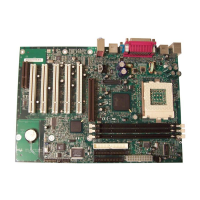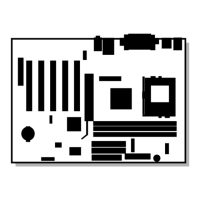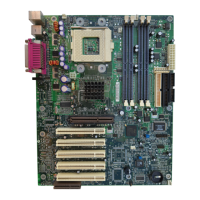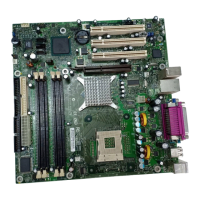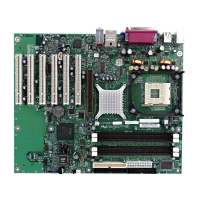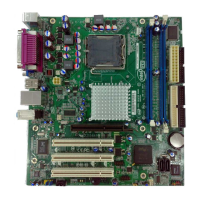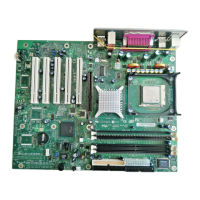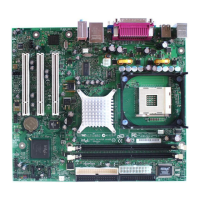Intel
®
Desktop Board D815EEA Technical Product Specification
88
3.2 BIOS Flash Memory Organization
The Intel 82802AB Firmware Hub (FWH) includes a 4 Mbit (512 KB) symmetrical flash memory
device. Internally, the device is grouped into eight 64-KB blocks that are individually erasable,
lockable, and unlockable.
3.3 Resource Configuration
3.3.1 PCI Autoconfiguration
The BIOS can automatically configure PCI devices. PCI devices may be onboard or add-in cards.
Autoconfiguration lets a user insert or remove PCI cards without having to configure the system.
When a user turns on the system after adding a PCI card, the BIOS automatically configures
interrupts, the I/O space, and other system resources. Any interrupts set to Available in Setup are
considered to be available for use by the add-in card.
PCI interrupts are distributed to available ISA interrupts that have not been assigned to system
resources. The assignment of PCI interrupts to ISA IRQs is non-deterministic. PCI devices can
share an interrupt, but an ISA device cannot share an interrupt allocated to PCI or to another ISA
device. Autoconfiguration information is stored in ESCD format.
For information about the versions of PCI and Plug and Play supported by the BIOS, see
Section 1.3.
3.3.2 PCI IDE Support
If you select Auto in the BIOS Setup program, the BIOS automatically sets up the two
PCI IDE connectors with independent I/O channel support. The IDE interface supports hard drives
up to Ultra ATA-66/100 and recognizes any ATAPI devices, including CD-ROM drives, tape
drives, and Ultra DMA drives (see Section 1.3 for the supported version of ATAPI). The BIOS
determines the capabilities of each drive and configures them to optimize capacity and
performance. To take advantage of the high capacities typically available today, hard drives are
automatically configured for Logical Block Addressing (LBA) and to PIO Mode 3 or 4, depending
on the capability of the drive. You can override the auto-configuration options by specifying
manual configuration in the BIOS Setup program.
To use Ultra ATA-66/100 features the following items are required:
• An Ultra ATA-66/100 peripheral device
• An Ultra ATA-66/100 compatible cable
• Ultra ATA-66/100 operating system device drivers
✏
NOTE
Ultra ATA-66/100 compatible cables are backward compatible with drives using slower IDE
transfer protocols. If an Ultra ATA-66/100 disk drive and a disk drive using any other IDE
transfer protocol are attached to the same cable, the maximum transfer rate between the drives is
33 MB/sec.
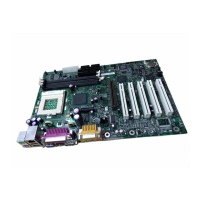
